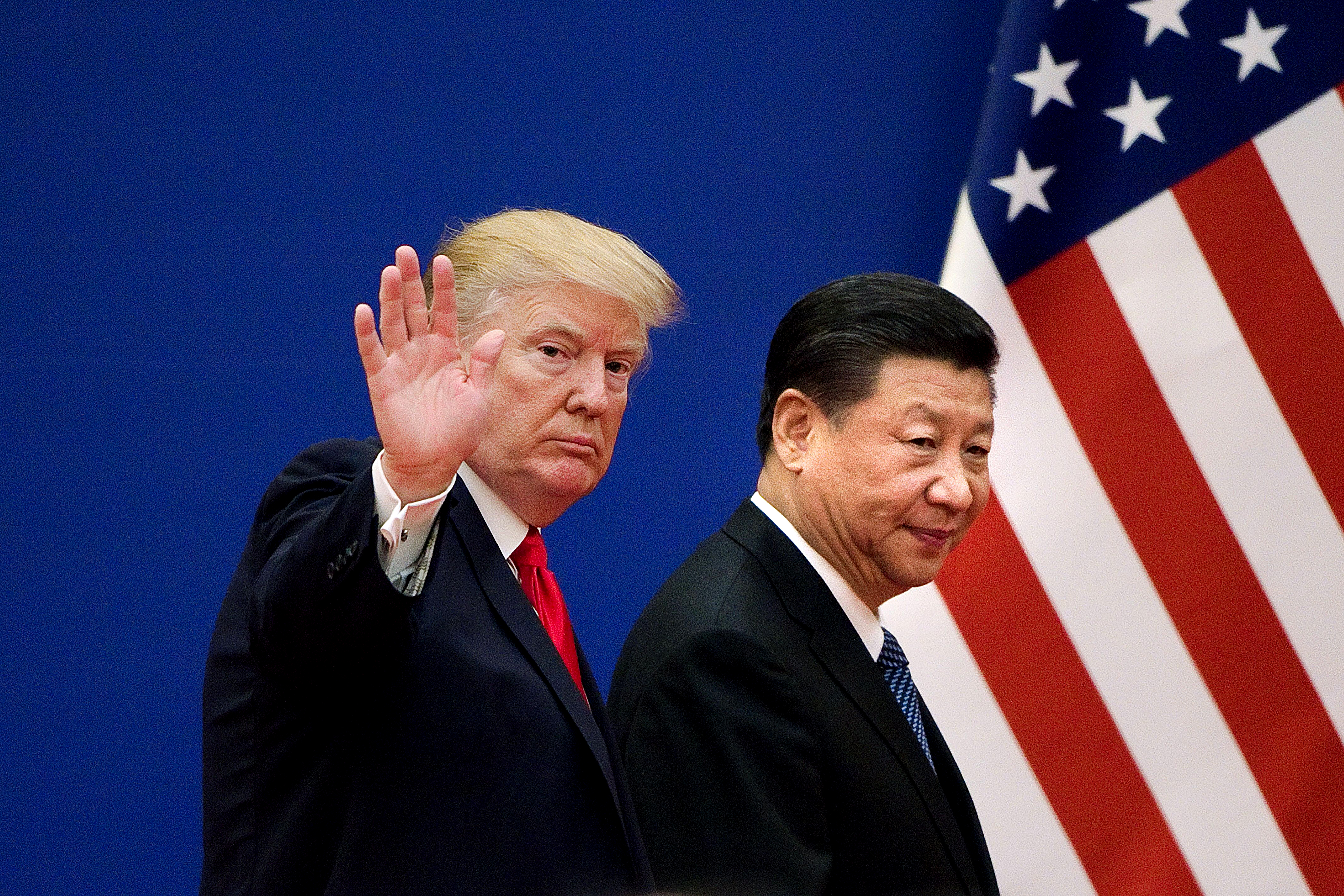Will the trade war become a cold war?
Or will Trump and Xi make a deal?

A free daily email with the biggest news stories of the day – and the best features from TheWeek.com
You are now subscribed
Your newsletter sign-up was successful
As Presidents Donald Trump and Xi Jinping head into the G-20 leaders' summit in Buenos Aires this week, "neither China nor the U.S. is in a conciliatory mood," said Shane Hickey at The Guardian. That means no end is in sight for the "game of tit-for-tat tariffs on each other's goods." Investors are holding on to hope that the meeting, the biggest annual gathering of world leaders to discuss the international economy, may ease the enmity. The U.S. wants to pressure China into changing what Trump calls its unfair trade practices. U.S. demands include giving American companies greater access to China's market, and an end to requirements that American businesses give up valuable technology to Chinese partners. In recent days, "the outlook has not looked so rosy," but any kind of civil talks may placate the market.
This tense trade war has been building for a long, long time, said Philip Pan at The New York Times. "The Chinese economy has grown so fast for so long now that it is easy to forget how unlikely its metamorphosis into a global powerhouse was." China is now the world leader in number of homeowners, internet users, college graduates, "and, by some counts, billionaires." Thirty-five years ago, 75 percent of China's populace lived in extreme poverty by world standards; that's now down to 1 percent. This astonishing growth was aided nearly every step of the way by the U.S. The hope: "Prosperity would fuel popular demands for political freedom and bring China into the fold of democratic nations." It didn't happen. China has found its success in its own way, with leaders calling themselves communists while embracing capitalism. Surprising political changes occurred — but they weren't in China. "China's rise as an export colossus was felt in factory towns around the world." In the U.S., that amounted to upwards of two million factory jobs lost, many in areas that voted for Trump.
The West has long been seen as a "bully and a beacon in China," said Andrew Browne at Bloomberg, and outside pressure has repeatedly pushed the country to change. For example, after 1989's Tiananmen Square massacre, foreign businesses fled China and the West imposed economic sanctions. In response, China stepped up market reforms and "multinationals soon returned to a roaring economy." Today, Xi's repressive tactics are concerning to China's citizens and damaging to its economy. "Trade tariffs may be the wrong lever," but "Trump's instincts to push back" against China are right. Indeed some "around Xi likely hope he'll listen to a message from foreign voices they don't dare to deliver themselves." The danger is that Trump could go too far and turn the trade war into a Cold War. Or he could fold and enter into a weak and empty deal. Rhetoric aside, both sides have reasons to make concessions, said Gerald Seib at The Wall Street Journal. China's own economy "is showing signs of faltering," and in the U.S., trade tensions "helped fuel a frightening stock-market slide" last week. "But a real resolution of trade disputes will require — to borrow a Chinese phrase — a long march."
The Week
Escape your echo chamber. Get the facts behind the news, plus analysis from multiple perspectives.

Sign up for The Week's Free Newsletters
From our morning news briefing to a weekly Good News Newsletter, get the best of The Week delivered directly to your inbox.
From our morning news briefing to a weekly Good News Newsletter, get the best of The Week delivered directly to your inbox.
A free daily email with the biggest news stories of the day – and the best features from TheWeek.com
-
 The ‘ravenous’ demand for Cornish minerals
The ‘ravenous’ demand for Cornish mineralsUnder the Radar Growing need for critical minerals to power tech has intensified ‘appetite’ for lithium, which could be a ‘huge boon’ for local economy
-
 Why are election experts taking Trump’s midterm threats seriously?
Why are election experts taking Trump’s midterm threats seriously?IN THE SPOTLIGHT As the president muses about polling place deployments and a centralized electoral system aimed at one-party control, lawmakers are taking this administration at its word
-
 ‘Restaurateurs have become millionaires’
‘Restaurateurs have become millionaires’Instant Opinion Opinion, comment and editorials of the day
-
 Epstein files topple law CEO, roil UK government
Epstein files topple law CEO, roil UK governmentSpeed Read Peter Mandelson, Britain’s former ambassador to the US, is caught up in the scandal
-
 Iran and US prepare to meet after skirmishes
Iran and US prepare to meet after skirmishesSpeed Read The incident comes amid heightened tensions in the Middle East
-
 Israel retrieves final hostage’s body from Gaza
Israel retrieves final hostage’s body from GazaSpeed Read The 24-year-old police officer was killed during the initial Hamas attack
-
 China’s Xi targets top general in growing purge
China’s Xi targets top general in growing purgeSpeed Read Zhang Youxia is being investigated over ‘grave violations’ of the law
-
 Panama and Canada are negotiating over a crucial copper mine
Panama and Canada are negotiating over a crucial copper mineIn the Spotlight Panama is set to make a final decision on the mine this summer
-
 Why Greenland’s natural resources are nearly impossible to mine
Why Greenland’s natural resources are nearly impossible to mineThe Explainer The country’s natural landscape makes the task extremely difficult
-
 Iran cuts internet as protests escalate
Iran cuts internet as protests escalateSpeed Reada Government buildings across the country have been set on fire
-
 US nabs ‘shadow’ tanker claimed by Russia
US nabs ‘shadow’ tanker claimed by RussiaSpeed Read The ship was one of two vessels seized by the US military